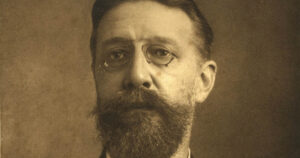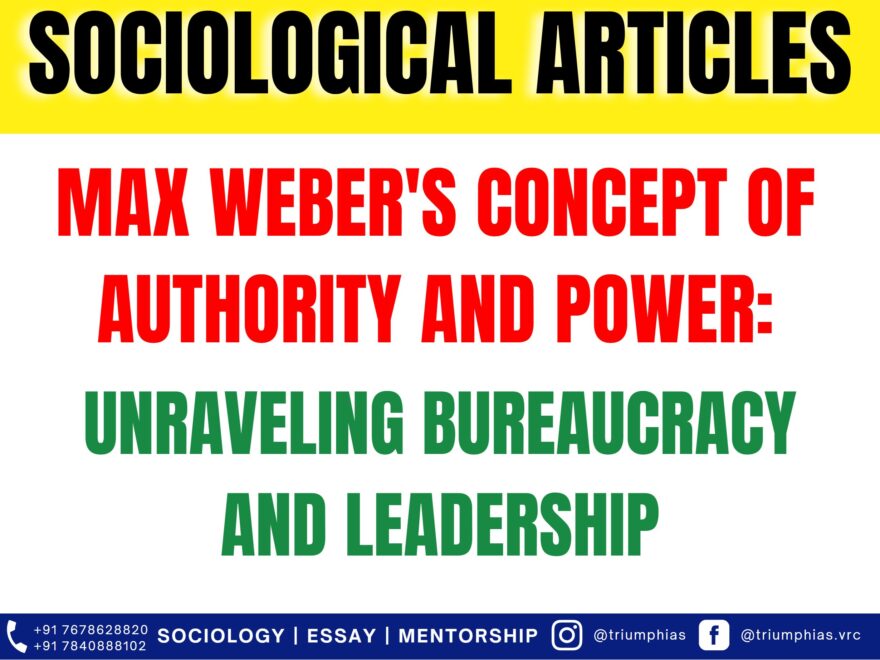Max Weber: Authority
(Relevant for Sociology Optional Paper 1 (Unit 4))

Weber’s conceptual model of bureaucracy encompassed several components, including a high level of specialization and a well-defined division of labor, where official duties were assigned accordingly. The hierarchical structure of authority established clear boundaries of command and responsibility. The organization operated based on a formal set of rules outlined in written documents. Interactions between members of the organization and clients were characterized by impersonality. The selection of personnel was based on their abilities and technical knowledge. Employment was typically long-term, promotions were determined by seniority and merit, and employees received fixed salaries while keeping their private and official income separate.
Although examples of well-developed bureaucracies existed in various regions prior to the rise of modern capitalism, it is primarily within this context that organizations closely resemble this idealized form. Weber employed these abstract elements of bureaucracy to elucidate a concrete phenomenon.
Types of Authority
In order to comprehend the different dimensions of authority, Max Weber developed idealized models that encompass three distinct types of authority: traditional, rational, and charismatic.
- Traditional authority is founded upon the reverence for longstanding customs and regulations.
- Rational authority is upheld through the implementation of laws, decrees, and regulations.
- Charismatic authority is distinguished by the exceptional qualities possessed by, or attributed to, a leader, as perceived by their followers, who place their trust and devotion in them.
Power and Authority
In everyday language, the term ‘power’ typically refers to strength or the ability to control. From a sociological perspective, it is defined as the capacity of an individual or group to fulfill their desires and implement their decisions and ideas. Power involves the capability to influence and/or control the actions of others, even if it goes against their own will.
According to Max Weber, power is an inherent aspect of social relationships. It pertains to the potential of imposing one’s will upon the behavior of another person. Power manifests in social interactions and creates situations of inequality, as the one who possesses power imposes it upon others. The impact of power varies depending on the circumstances, taking into account the extent to which it is resisted or opposed by others. Weber emphasizes that power can be exercised in various domains of life, extending beyond battlefields or politics. It can be observed in the marketplace, during lectures, social gatherings, sports events, scientific discussions, and even through acts of charity. For instance, giving alms or ‘daan’ to a beggar represents a subtle way of exerting one’s superior economic power.
Weber discusses two contrasting sources of power as follows:
- Power derived from a constellation of interests that emerge within a formally free market. For example, a group of sugar producers controlling the supply of their product in the market to maximize their profits.
- An established system of authority that assigns the right to command and the duty to obey. For instance, in the military, a soldier is obligated to follow the orders of their officer. The officer derives their power through a recognized system of authority.
To master these intricacies and fare well in the Sociology Optional Syllabus, aspiring sociologists might benefit from guidance by the Best Sociology Optional Teacher and participation in the Best Sociology Optional Coaching. These avenues provide comprehensive assistance, ensuring a solid understanding of sociology’s diverse methodologies and techniques
Max Weber, bureaucracy, leadership, authority, power, social relationships, traditional authority, rational authority, charismatic authority, sociology, social interactions, social inequality, constellation of interests, system of authority, market power


